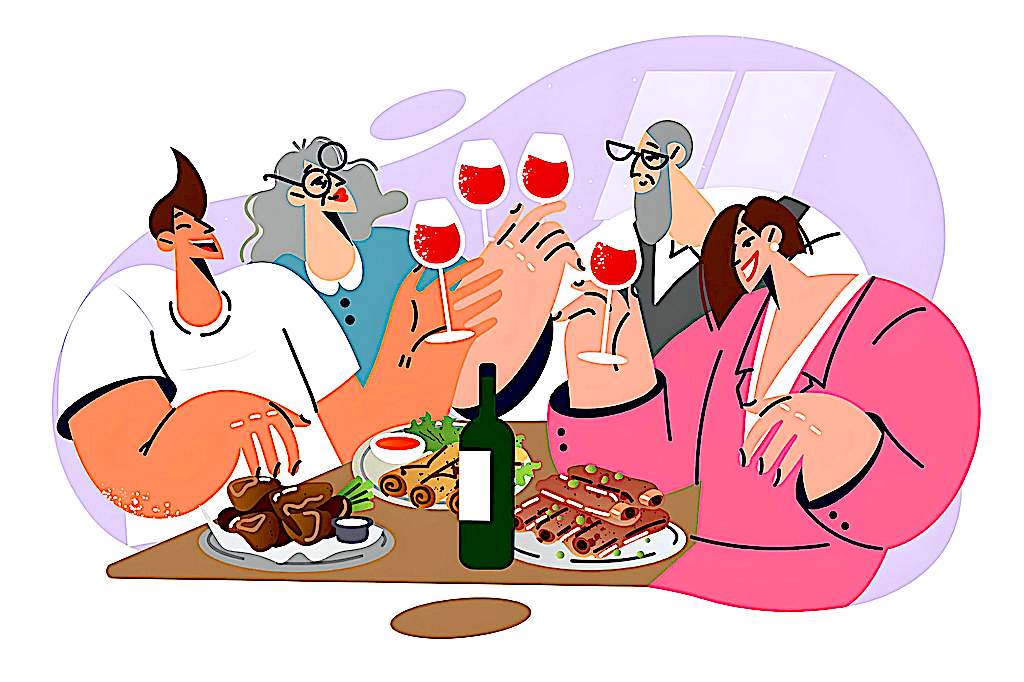Wine Attacks the Head!

BDD
During the holiday season, wine is typically the alcoholic beverage of choice. Unfortunately, for some people, even a small amount of wine—red in particular—can cause a headache.

Red wine causes more headaches than other alcoholic drinks, and a study in the journal Scientific Reports aimed to find out why. Researchers discovered that red wine’s rich flavonol or flavonoid content, specifically quercetin, impacts how the body metabolizes alcohol, which can result in a headache.
Interestingly, quercetin is an antioxidant found in fruits such as grapes and vegetables. However, when combined with alcohol, it can have negative side effects.
“According to our hypothesis, a headache will only occur when quercetin and alcohol are consumed simultaneously. I think that is why it has taken so long to sort this out,” said Dr. Andrew Waterhouse, professor emeritus with the UC Davis Department of Viticulture and Enology.
What causes red wine headaches?
“Red wine contains more tannins and histamines compared to white wine, which are contributing factors of headaches,” said Dr. MaryAnn Mays, a neurologist at the Cleveland Clinic. “Quercetin a new potential factor, another culprit for why people experience red wine headaches.”
Specifically, quercetin changes form when it’s metabolized with alcohol.
__________
🟥
Researchers found that this metabolism results in the accumulation of acetaldehyde. This causes the classic symptoms of flushing, headaches, and nausea that are commonly associated with red wine.
__________
Moreover, quercetin levels are influenced by grape cultivation, with sunlight exposure during growth potentially leading to higher quercetin content.
“When we consume alcohol, our bodies quickly go to work to break it down into other compounds that are easier to get rid of,” said Dr. Nate Wood, an instructor of medicine and medical education fellow in the section of general internal medicine at the Yale School of Medicine.
One of these compounds is called acetaldehyde. Acetaldehyde is known to cause many of the nasty hangover symptoms we’re all familiar with, including headaches.
Why some people are more susceptible to wine headaches
First, it’s important to understand that there are two parts of alcohol metabolism: alcohol dehydrogenase and acetaldehyde dehydrogenase. Quercetin could be blocking that metabolism, you may get the buildup of acetaldehyde.
There may also be a genetic component to consider.
Certain individuals may lack the enzyme that can metabolize alcohol in wine, which involves the breakdown of histamines. Those individuals are more susceptible.
East Asian genetics and alcohol
Approximately 40% of the Eastern Asian population can have stronger negative reactions to alcohol. These reactions include facial flushing, headaches, fast heart rate, and nausea.
For them, the effects of red wine on their body will likely be similar to other types of alcohol. The quercetin derivative cannot block the aldehyde dehydrogenase enzyme because the enzyme is already inactive.
People with a certain type of aldehyde dehydrogenase may experience stronger headaches after drinking red wine compared to other alcoholic beverages.
It is also important to consider the overall health and medical conditions of the individual.
For example, those with underlying migraines are more likely to experience wine-induced headaches when compared to the general population. This is something the scientists at the University of California are looking to explore more in the future.
Women: more prone to headaches
In addition, women are more susceptible to headaches from wine. Women have more body fat than men, which stores alcohol. Women have less alcohol dehydrogenase, the enzyme responsible for breaking down alcohol, in their blood. As a result, it takes them longer to metabolize alcohol compared to men.
How to minimize headaches
- Avoid red wine, drink white wine (avoid or use in small qualities).
- Choose high-quality wines. Lower-quality wines may be higher in sugar.
- Avoid drinking on an empty stomach.
- Practice the 1-to-1 rule (glass of wine then a glass of water or sip of wine then a sip of water).
It’s also important to note that certain red wines are better than others. MaryAnn Mays recommends: “Pinot noir is a better choice compared to fuller-bodied wines like Cabernet. This could be because it has a lower number of tannins. It could also be certain grapes or regions that play a part as well.”
__________
🟡 🔴 🔵 REMEMBER
__________
Red wine has quercetin, a compound that affects how the body processes alcohol, possibly causing headaches.
Red wine has a greater chance of causing headaches because of the higher number of tannins, quercetin, and histamines.
To prevent headaches, experts advise switching to white wine, drinking enough water, and not drinking alcohol on an empty stomach.
__________
